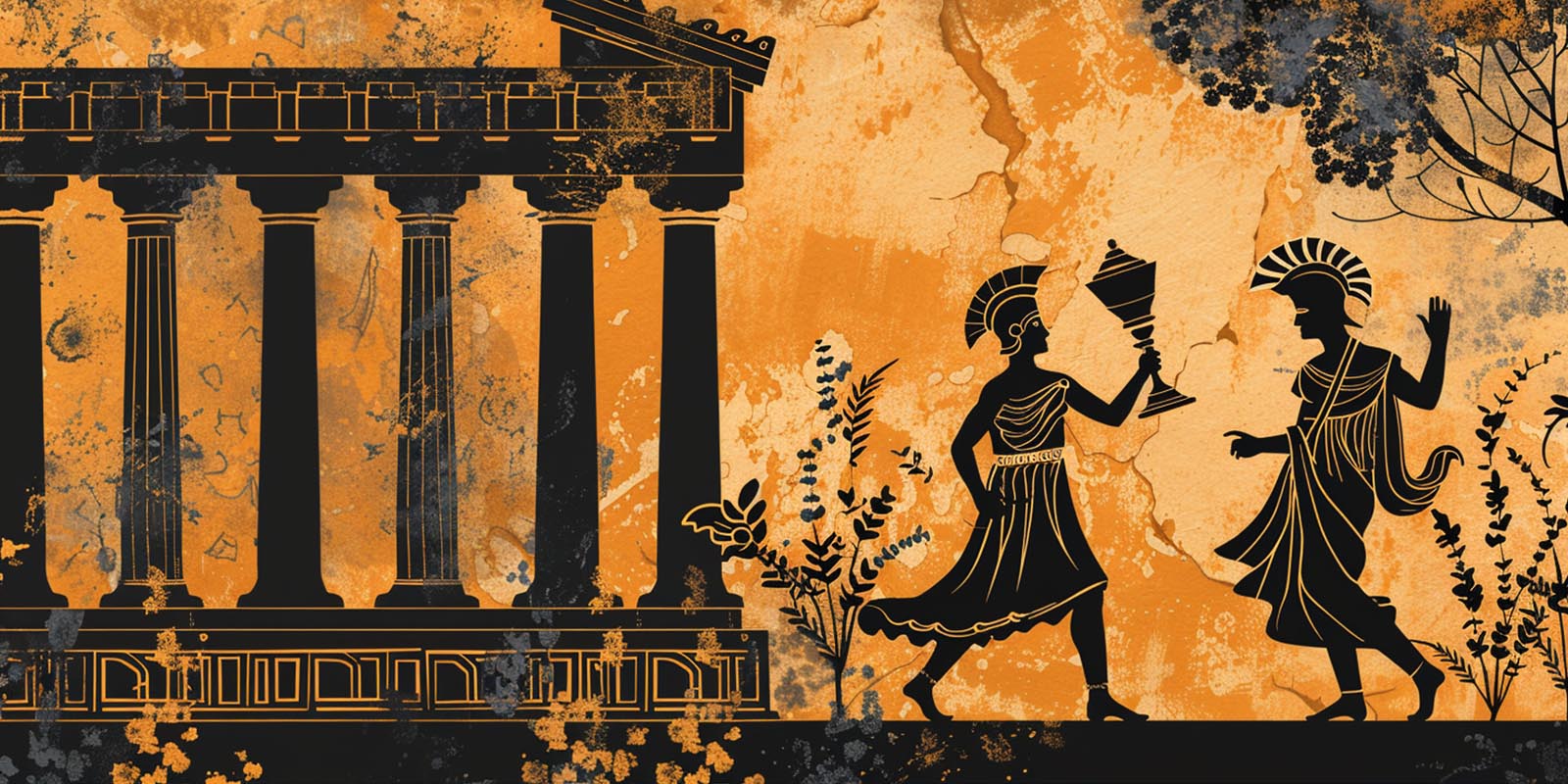

Ancient Greek festivals were vibrant and dynamic celebrations that played a significant role in the religious, cultural, and social life of the city-states, bringing communities together in joyous and reverent observance.
Festivals in ancient Greece were often held in honor of the gods and goddesses, marking important dates in the religious calendar. These events were characterized by elaborate processions, sacrifices, feasts, athletic competitions, and theatrical performances. The most famous of these festivals included the Olympic Games, dedicated to Zeus, and the Dionysia, dedicated to Dionysus, the god of wine and theatre.
The communal nature of these festivals fostered a sense of unity and shared identity among participants. Citizens from all walks of life would gather to partake in the festivities, contributing to the vibrant atmosphere. These occasions provided an opportunity for public display of piety and gratitude, reinforcing the bonds between the people and their deities.
Athletic competitions were a highlight of many Greek festivals, showcasing physical prowess and skill. The Olympic Games, held every four years in Olympia, were the most prestigious, drawing competitors and spectators from across the Greek world. Victors were celebrated as heroes, their achievements immortalized in poetry and sculpture, symbolizing the ideals of excellence and honor.
Theatrical performances were another key feature, particularly during the Dionysia. These festivals included dramatic contests where playwrights presented their works, ranging from tragedies to comedies. The theatre was seen as a sacred space, and the performances were both a form of entertainment and a religious offering to Dionysus. The themes explored in these plays often reflected the values, conflicts, and beliefs of Greek society.
The significance of ancient Greek festivals extended beyond the immediate celebrations. They were occasions for political discourse, economic exchange, and cultural expression. The gatherings facilitated communication and collaboration among city-states, promoting a sense of shared Hellenic identity. The rituals and customs observed during these festivals have left a lasting legacy, influencing cultural and religious practices throughout history.
Today, the festivals of ancient Greece continue to captivate our imagination, offering insights into the values and traditions that shaped one of the most influential civilizations in history. The grandeur and spirit of these events remind us of the enduring human desire to celebrate, connect, and honor the divine.
Drama in ancient Greece was a vital cultural and religious activity, particularly showcased during festivals such as the Panathenaia, the Dionysia, and the Lenaia. The Panathenaia honored Athena with various cultural events, including dramatic performances.
More
Athletics in ancient Greece reached its peak in the four major Panhellenic Games: the Olympic, the Pythian, the Isthmian, and the Nemean Games. The Olympic Games, held in Olympia every four years, were the most prestigious, honoring Zeus with events like running, wrestling, and chariot racing.
More
Ancient Greek art and architecture, with its harmonious proportions and timeless elegance, continue to inspire awe and admiration millennia later.
Discover
Greek mythology, a rich tapestry of gods, heroes, and mythical creatures, captivates the imagination with its tales of love, betrayal, and epic adventures that delve into the depths of the human psyche.
Discover
Ancient Greek history, marked by remarkable achievements in democracy, philosophy, and warfare, shaped the foundation of Western civilization, leaving an indelible legacy of innovation and cultural influence that continues to resonate to this day.
Discover
The ancient Greek Olympics, held in Olympia every four years, celebrated athleticism, unity, and cultural pride, serving as a testament to the enduring spirit of competition and excellence that transcends time and borders.
Discover
Ancient Greek wars, such as the Persian Wars and the Peloponnesian War, were pivotal conflicts that shaped the course of history, highlighting the struggle for power, independence, and the clash of civilizations in the ancient Mediterranean world.
Discover
Ancient Greek culture and society, characterized by its emphasis on art, philosophy, and civic engagement, fostered a vibrant intellectual and social landscape where innovation flourished, democracy thrived, and the pursuit of knowledge and excellence was celebrated as fundamental values of civilized life.
Discover
Find out more about ancientgreece.com